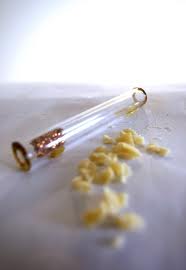Signs of Crack Use and Associated Risks
Crack cocaine is a powerful stimulant the affects the entire central nervous system, adding stresses that damage the brain, heart, and lungs. When you smoke crack cocaine, the heart beats faster and your muscles tense. This results in:
- elevated blood pressure;
- constriction of blood vessels;
- possible heart attack, cardiac arrest, or stroke.
A person who leaves paraphernalia laying around, such as baggies with crack rocks or residue from the drugs or crack pipes, shows signs of crack use. According to the University of Santa Cruz, a crack cocaine user may need doses in as short as 10- to 15-minute intervals; it is one of the most addictive drugs there is.
Physical Signs of Crack Use
There are obvious, physical signs that can identify signs of crack use in someone. In addition to dilated pupils and dry mouth, you may experience:
- sweating;
- limited appetite;
- restless and talkative;
- bursts of too much energy leading to lack of sleep.
Other negative effects and symptoms might arise after consistent drug use including paranoia, defensiveness, isolation, and depression. Crack cocaine use may also cause a person to:
- have erratic mood swings;
- present false sense of confidence;
- be susceptible hallucinations;
- feel imaginary bugs on the skin, causing you to pick and scratch.
Signs of crack use may be easier to spot due to its quick development of addiction. Crack cocaine users can become dependent on the drug within days, leading to binge use. When you binge on crack cocaine, this can result in compulsive behavior and paranoia, and in extreme cases, death.
Driving Under the Influence of Drugs
People who decide to use crack cocaine cause harm to themselves and to others if driving on the road. Although using crack can make you feel invincible, the drug can make you lose concentration while driving, putting you at risk for accidents. Drug-impaired people who drive are in danger of causing fatal accidents while driving, in addition to legal consequences.
Overdoses Prove Fatal

Having drug paraphernalia, such as a crack pipe, is a sign of crack use.
There are a multitude of risks when using crack cocaine. Dangers include, but are not limited to:
- irregular heartbeat, heart attack, or heart failure;
- strokes, seizures, and bleeding in tissue surrounding the brain;
- sleeplessness;
- nausea;
- headaches;
- there is increased risk of hepatitis and HIV infection for intravenous cocaine users.
Crack cocaine users who overdose may experience convulsions and reach higher than normal body temperatures. These conditions may require hospitalization and without prompt treatment, it can result in death. Signs of crack use are not something to ignore because too much can lead to fatal results.
Suffering from Drug Addiction and Signs of Crack Use
Crack cocaine can take control of your body rapidly. It can affect relationships between you and your work, family, and friends. It can lead to serious legal trouble, destroy partnerships, and cause other difficulties in your life.
If you or someone you know show signs of crack use, seeking a rehab center to help overcome the addiction is the answer. There are people who want to provide help.